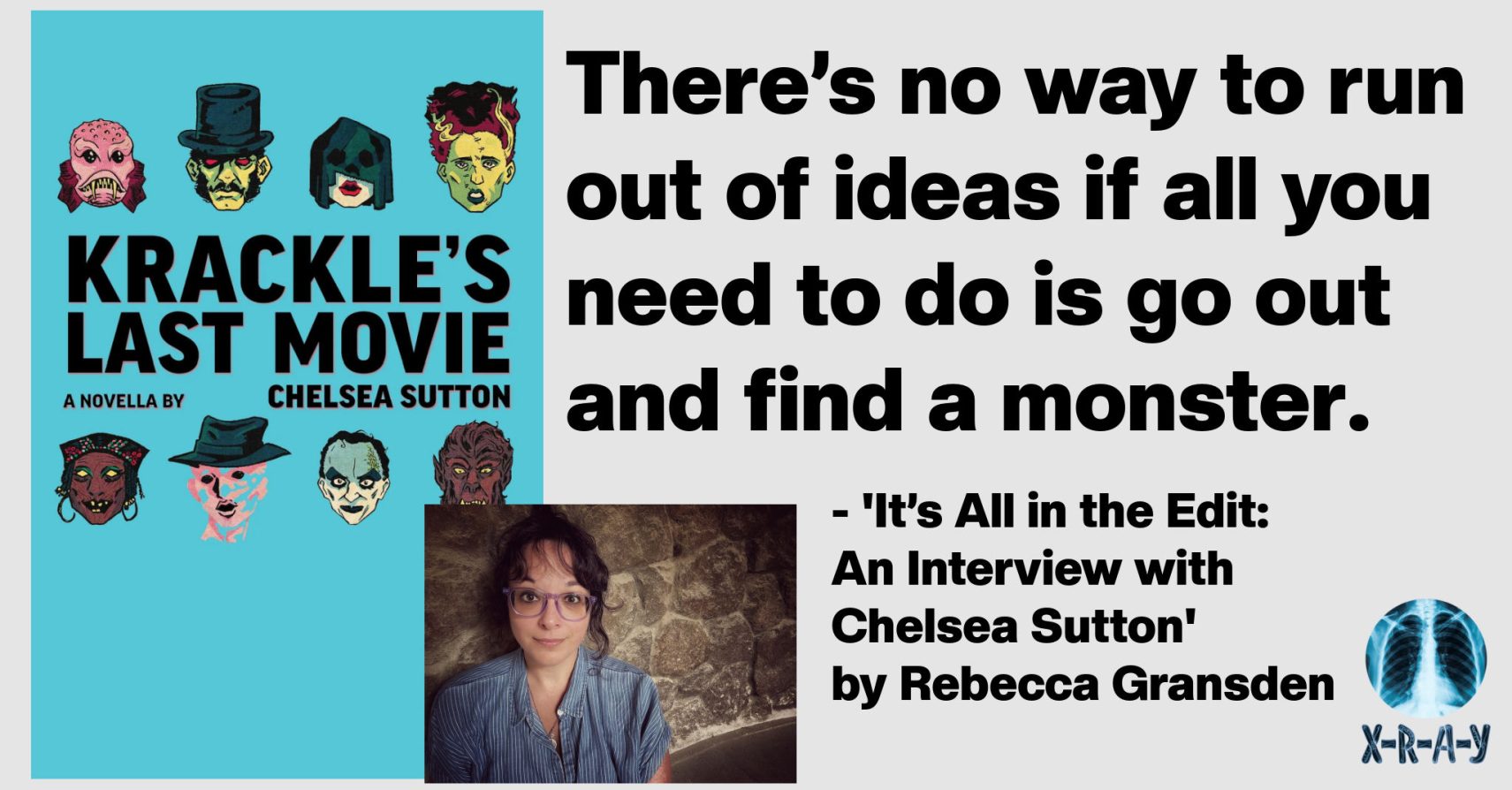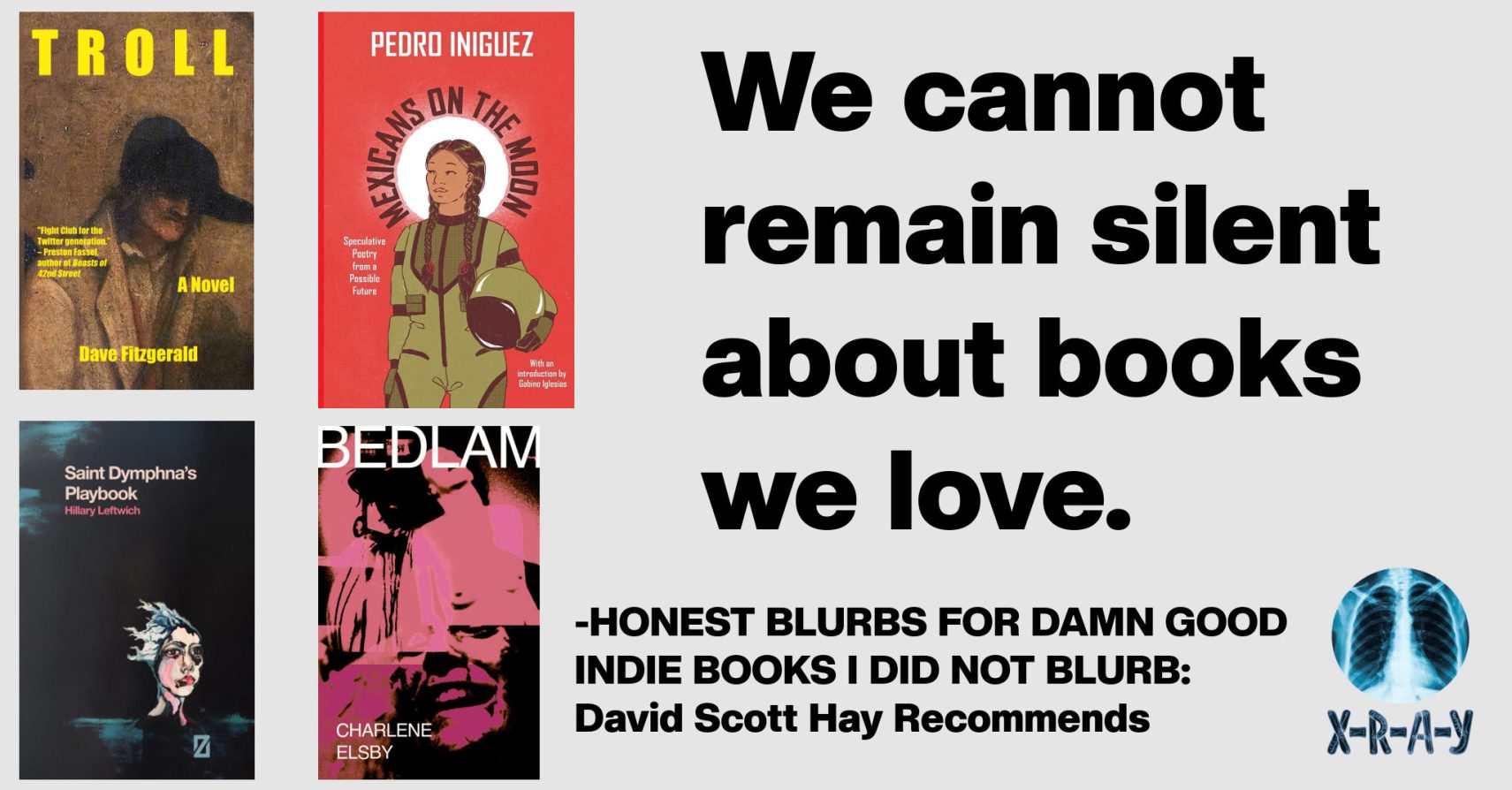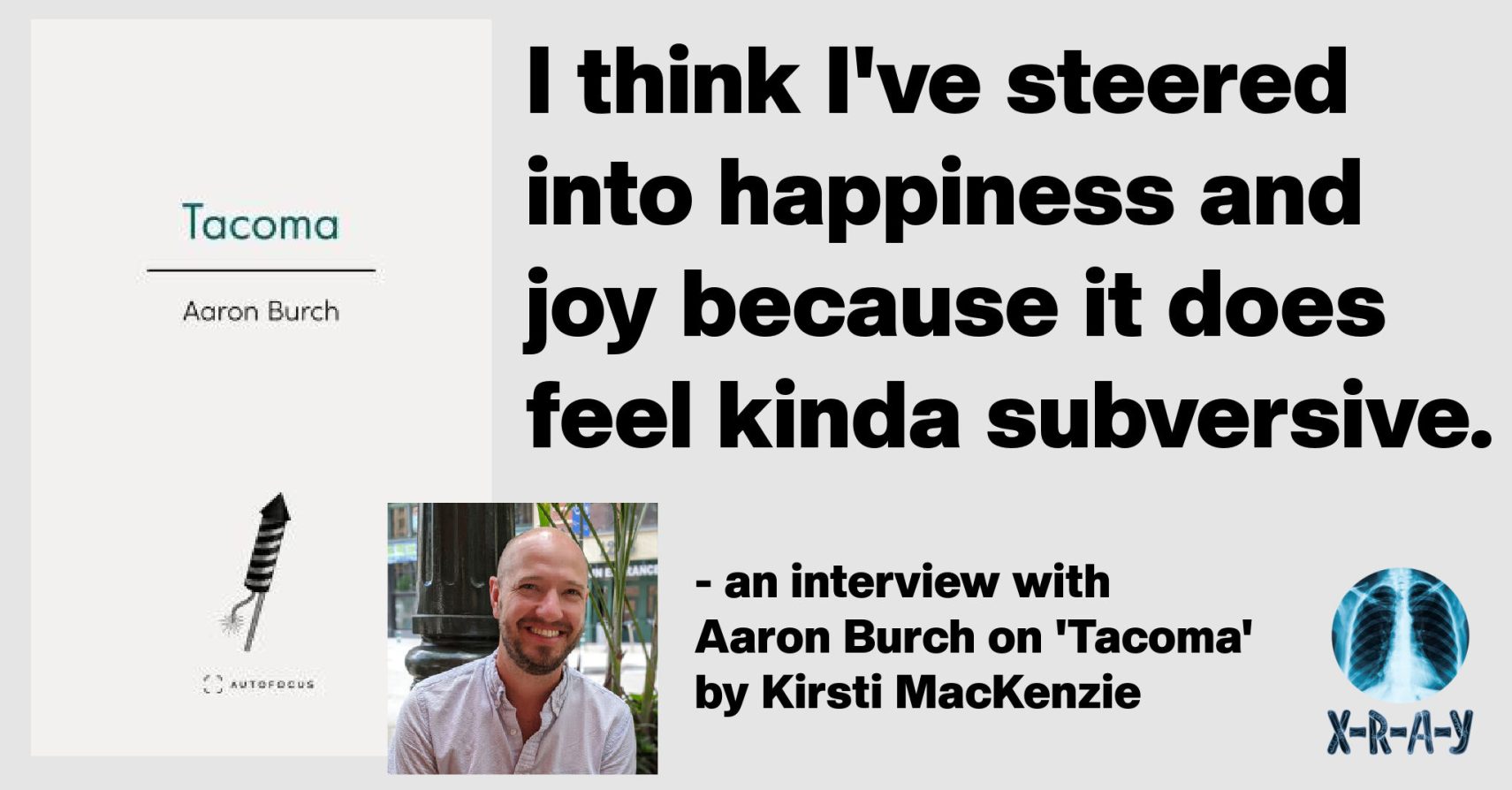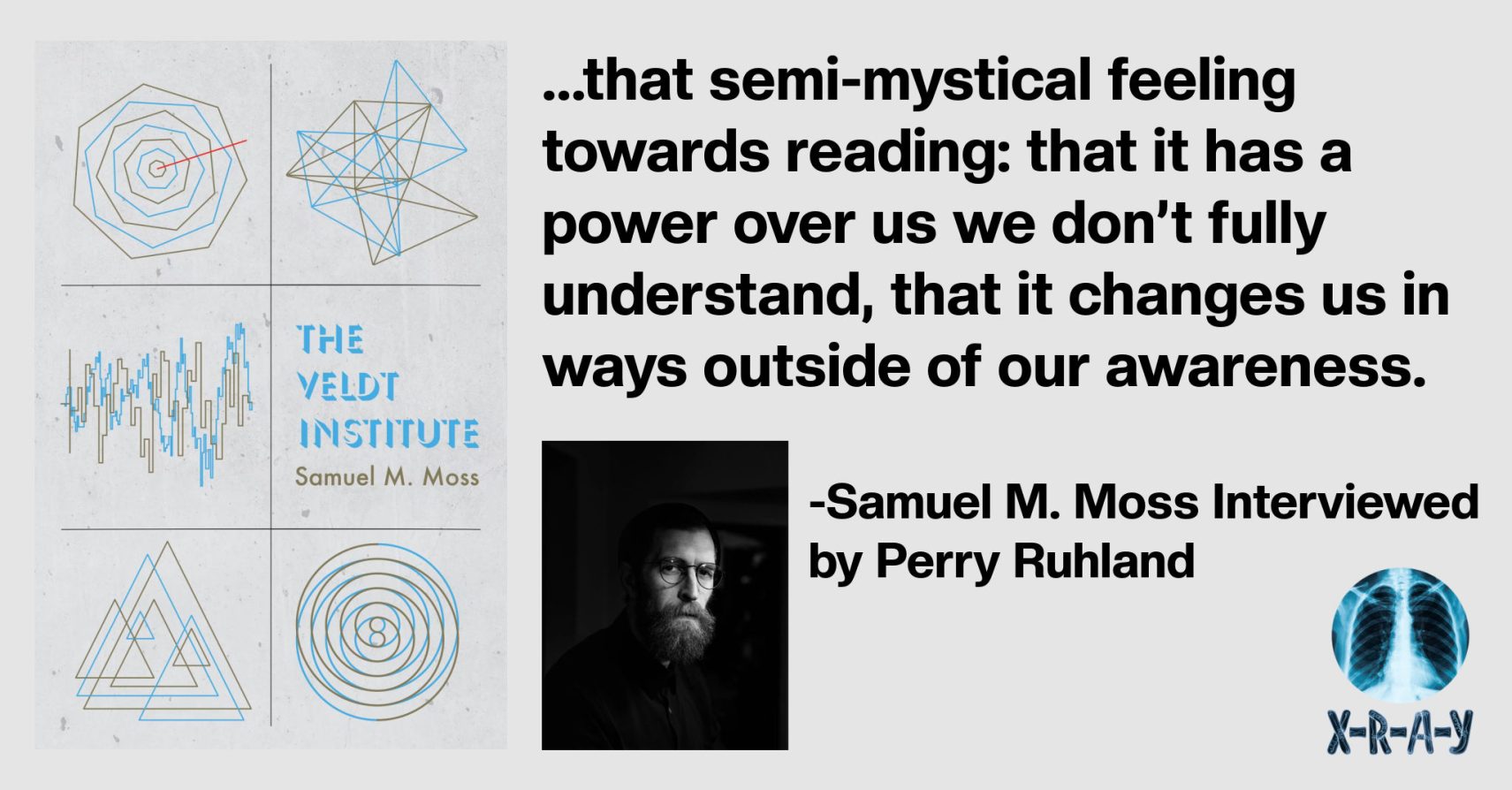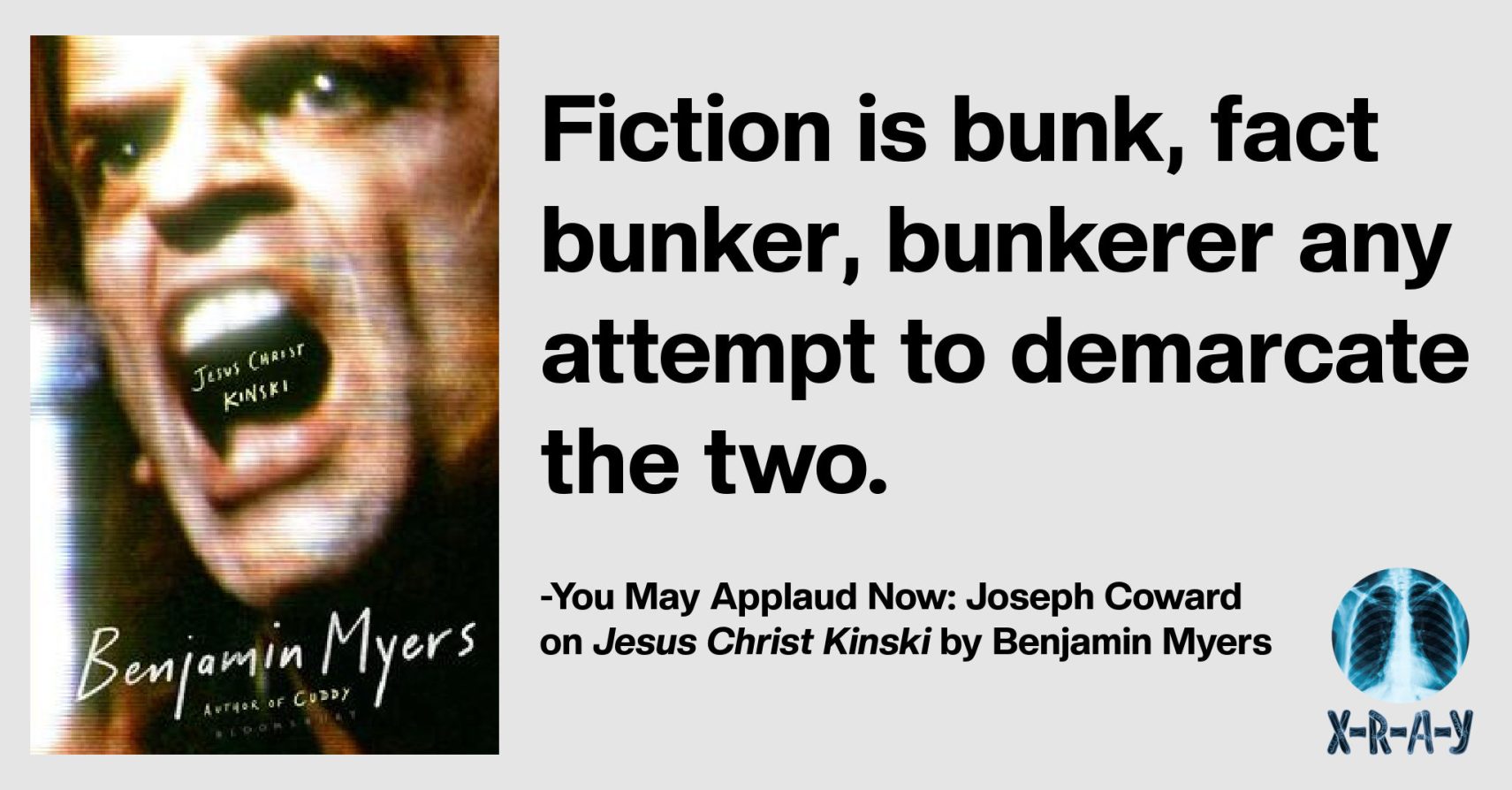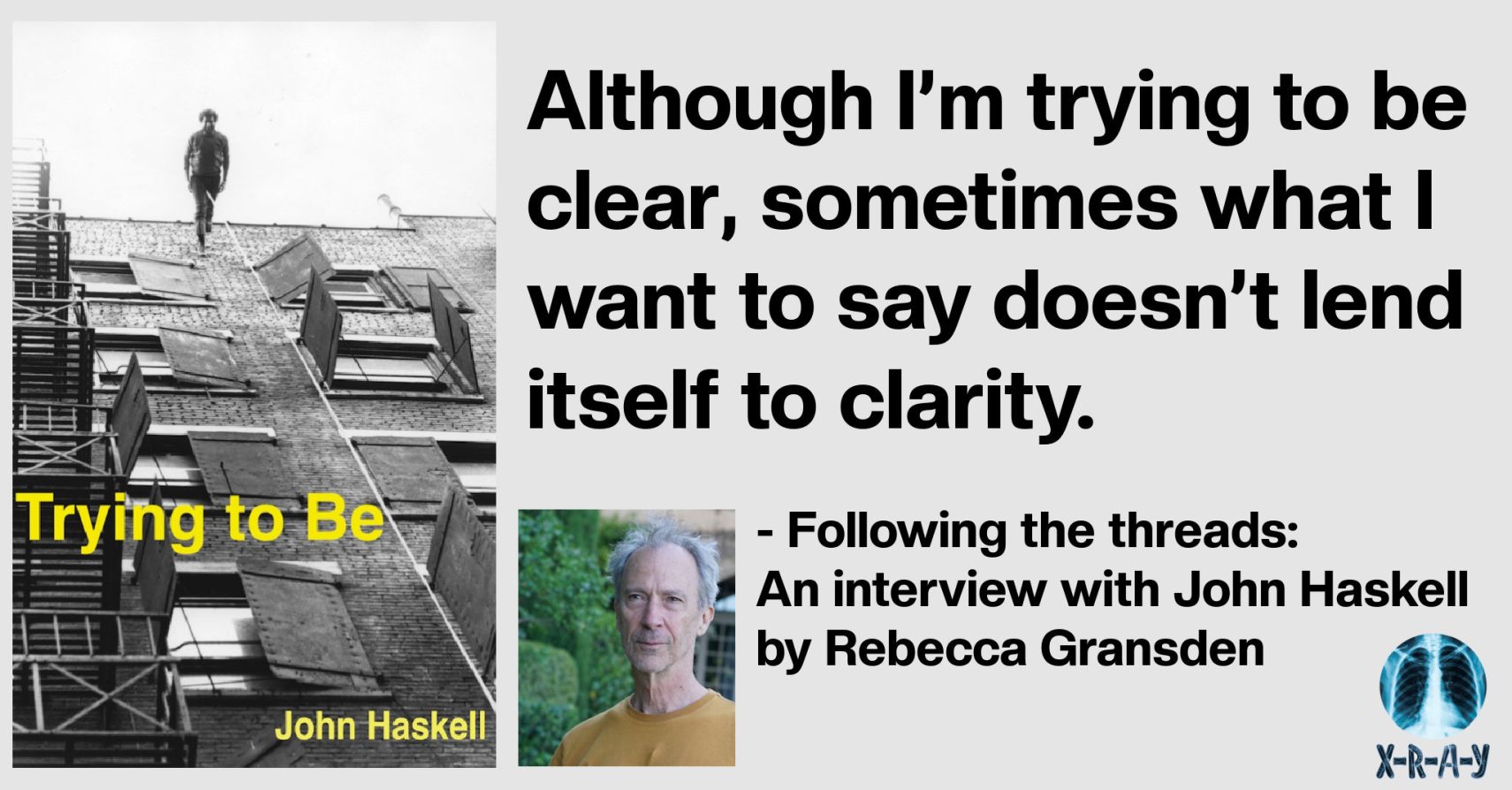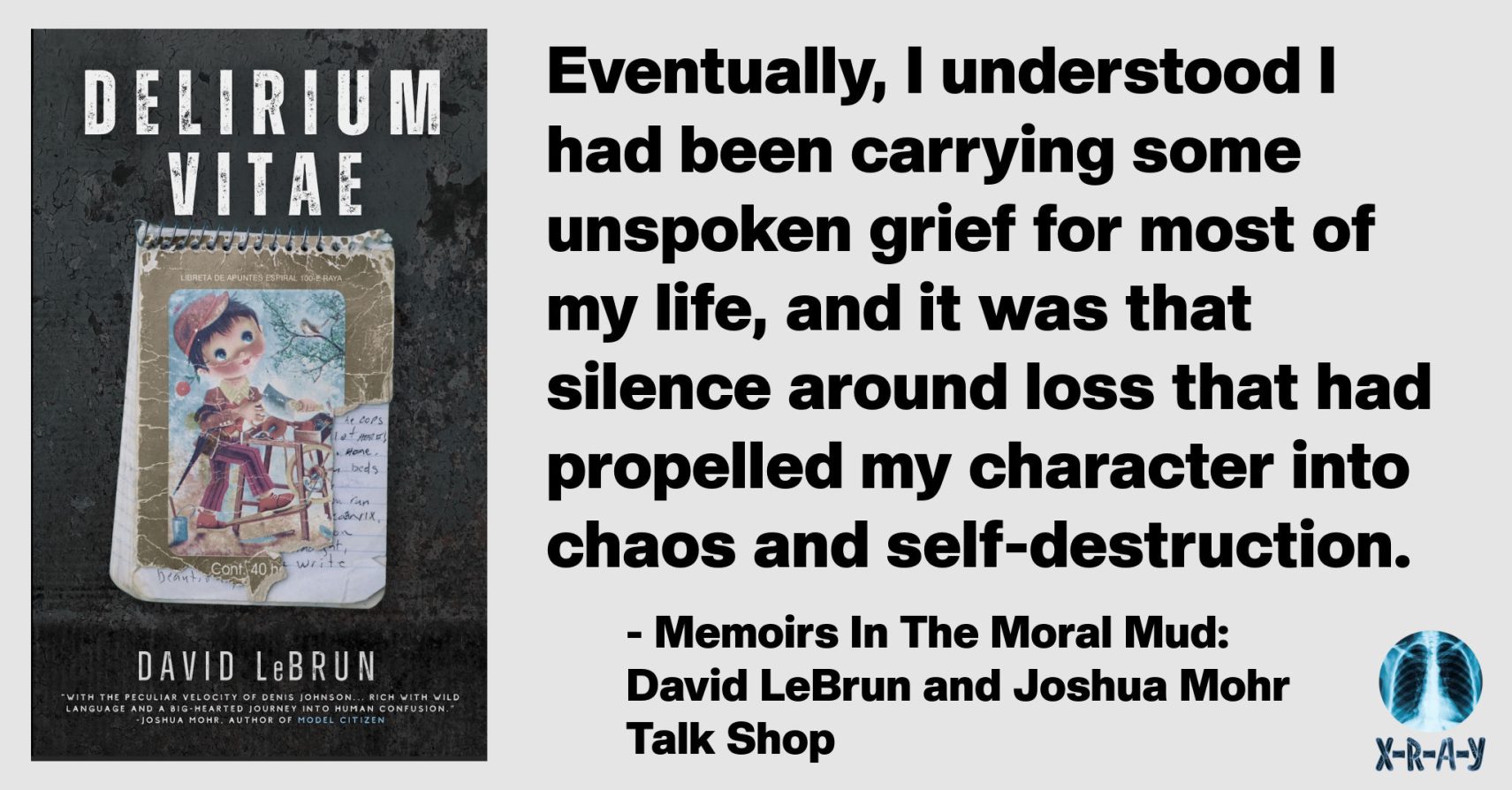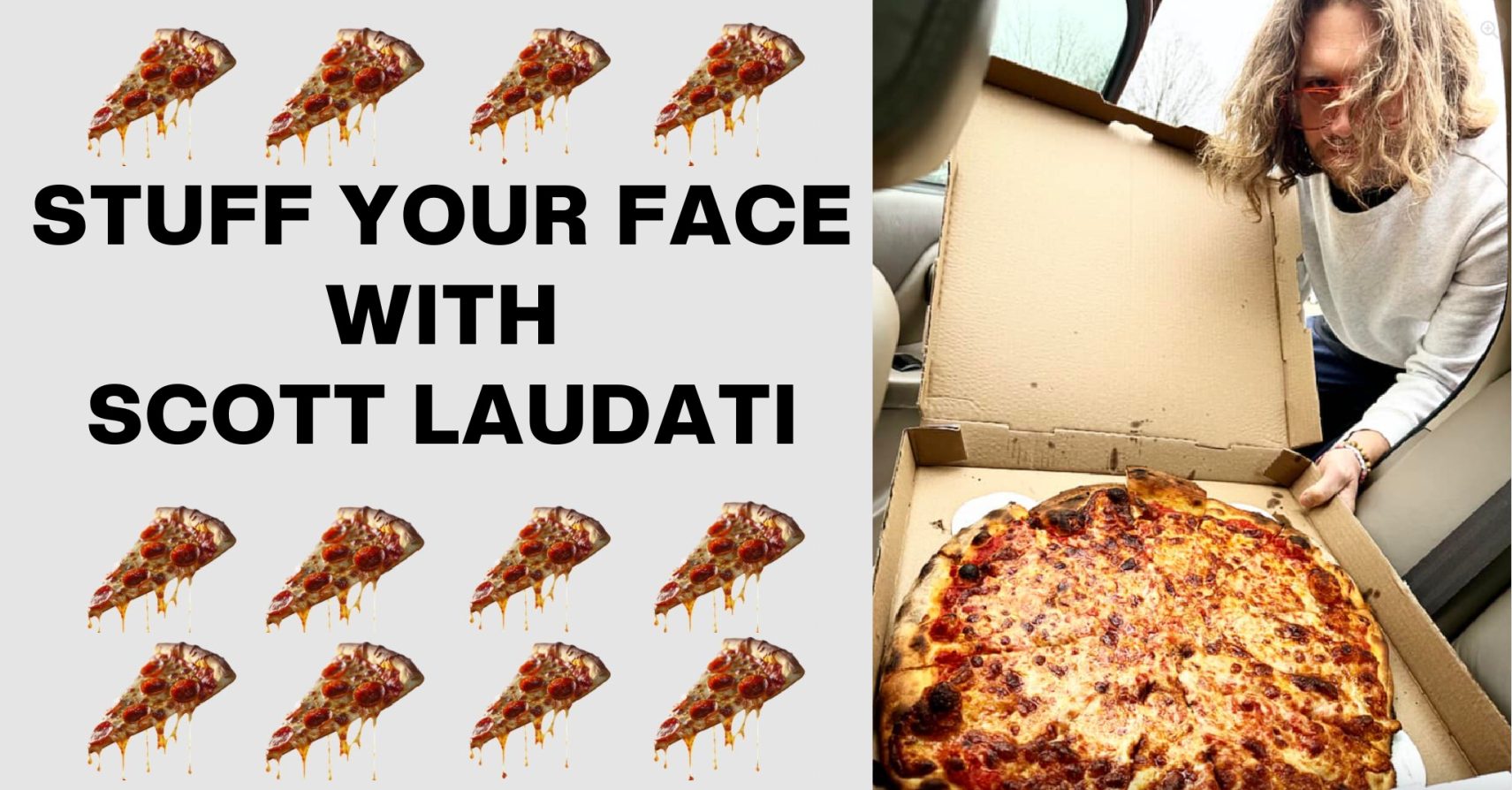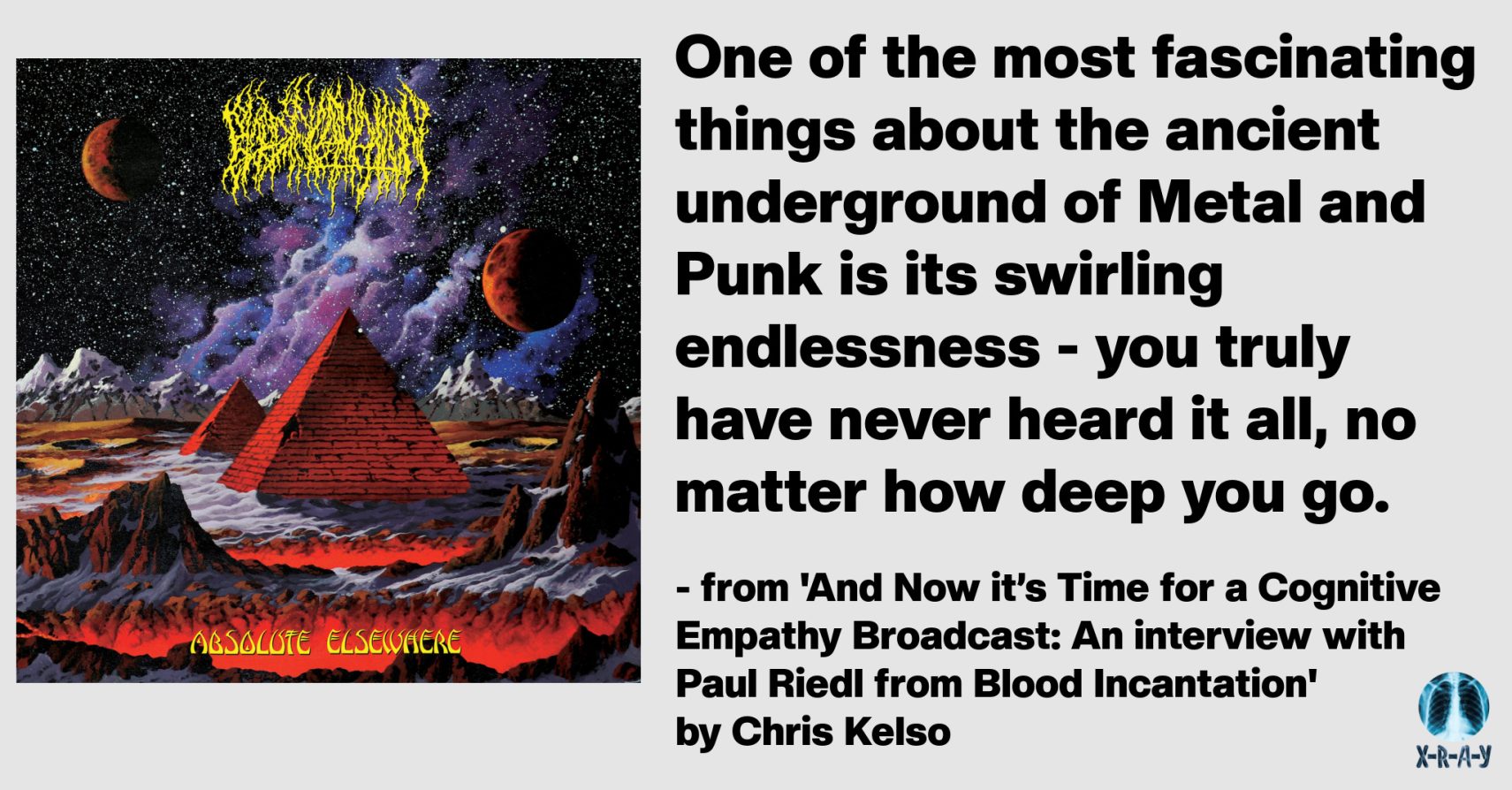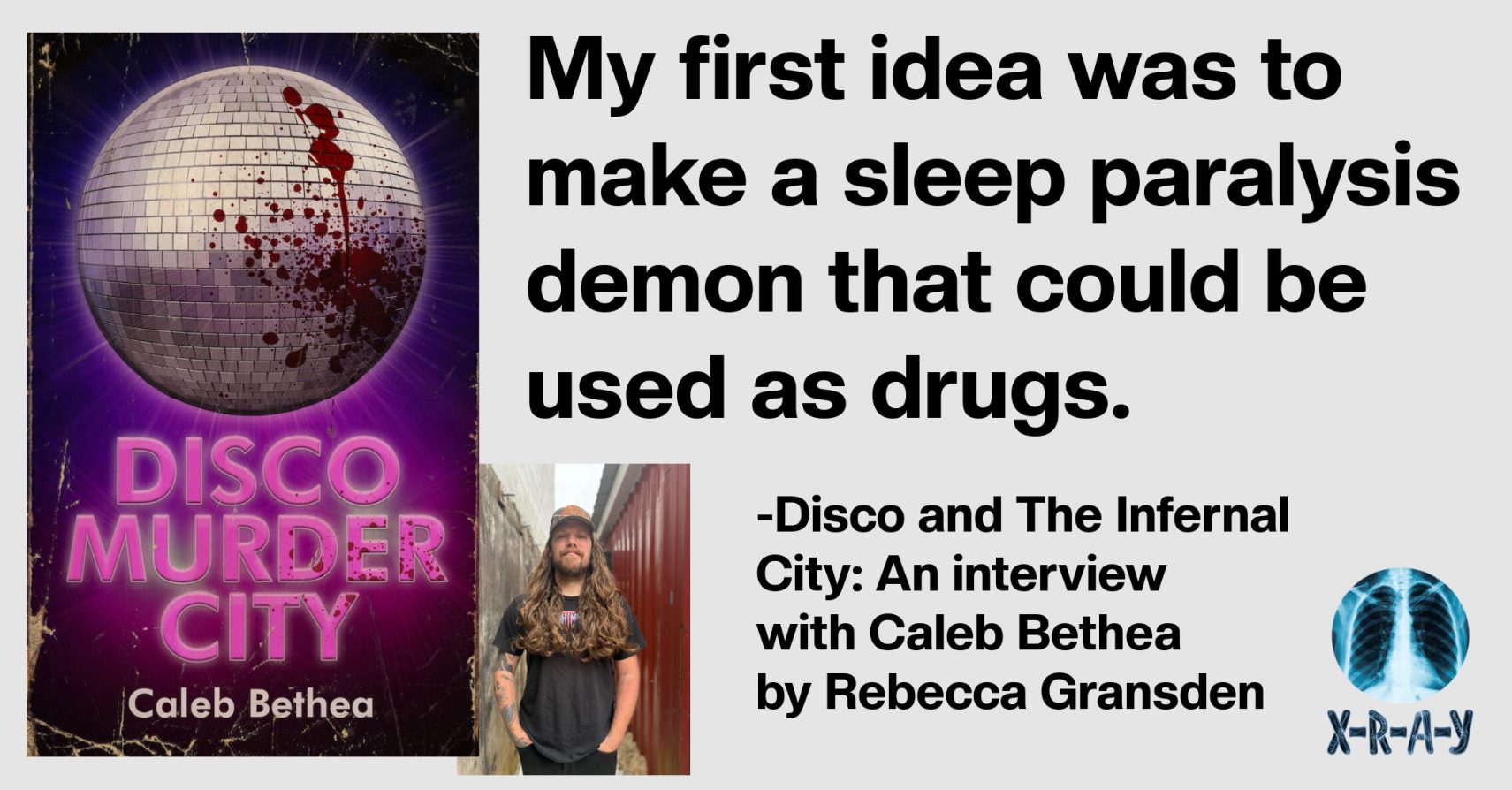
DISCO AND THE INFERNAL CITY: AN INTERVIEW WITH CALEB BETHEA by Rebecca Gransden
The city lights up after nightfall, and Caleb Bethea knows the way. With Disco Murder City (Maudlin House, 2025) Bethea takes the lead, chasing fear along emptied alleys, into pulsating nightclubs filled with star-kissed divas. The sweat of violence and the will to get down infect every pore, and demons release their energy with a smile. Bethea decorates the city in cinematic grit and sparkle. The only thing more silver than the screen are the knee high platform boots. I spoke to Caleb about the book. Rebecca Gransden: Disco Murder City takes place in a world saturated in the…

